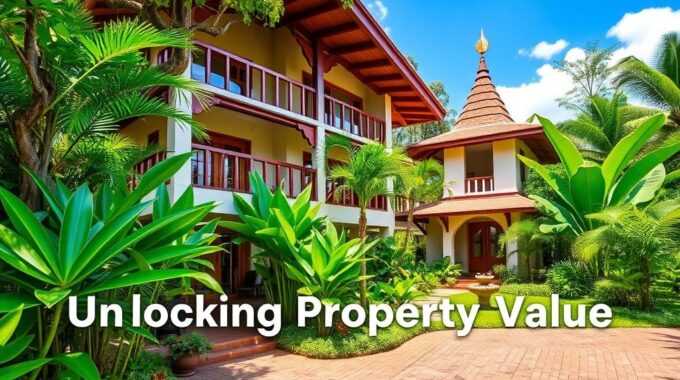GAP Investments provides tailored financing solutions for investors in Costa Rica, understanding the unique needs…

Analyzing Risk in Hard Money Lending | Costa Rica
Hard money lending in Costa Rica raises a key question: Are the profits worth the risks? The private lending scene, highlighted by GAP Investments, offers unique chances for investors. With interest rates from 12% to 18% annually, returns can be higher than traditional bank loans. Yet, understanding the risks is essential to balance rewards and risks.
Real estate is constantly changing, and knowing hard money loans is crucial. These loans use properties as collateral. By checking borrower trustworthiness, loan-to-value ratios, and market conditions, investors can make smart choices. This knowledge is key to success in private lending in Costa Rica.
Key Takeaways
- Hard money lending provides quick access to capital but comes with higher interest rates.
- GAP Investments plays a pivotal role in connecting lenders and borrowers.
- Factors such as borrower credibility and market analysis are vital for risk assessment.
- The location of a property significantly influences its value and investment potential.
- A comprehensive understanding of market trends can help in making informed investment decisions.
Understanding Hard Money Lending in Costa Rica
Hard money loans are popular in Costa Rica’s real estate market. They offer quick financing based on property value. This makes them great for investors and those needing fast capital.
Approval can happen in just 10 business days. This speed and efficiency set hard money loans apart.
Overview of Hard Money Loans
In Costa Rica, private mortgage lending starts at $50,000 and can go over $350,000. Interest rates are competitive, ranging from 12% to 18% annually. This helps borrowers meet various financial needs.
Loan terms vary from 6 months to 3 years. This flexibility suits different financial situations. The key to getting these loans is meeting the documentation requirements, which differ based on residency status.
- Documentation includes personal identification like a passport or residency card.
- Financial documents such as tax returns and 12 months of bank statements are essential.
- Corporate borrowers need additional documentation for verification.
These loans can be used for home remodeling, starting a business, or buying a vehicle. GAP Investments Costa Rica offers customized lending solutions. They also help borrowers understand the requirements.
The Role of GAP Investments
GAP Investments Costa Rica is a key player in hard money lending. They have facilitated over $641.7 million in investments. The firm provides loans up to $3 million and focuses on flexible options.
Their application process is detailed. They assess the borrower’s financial situation and evaluate the property. For more on borrowing requirements, check out the requirements for hard money loans. GAP Investments helps investors understand the Costa Rica real estate market, ensuring they get the best returns.

Potential Benefits of Hard Money Lending
Hard money lending offers many advantages for investors in Costa Rica’s real estate market. It provides quick access to capital and flexible loan terms. These benefits can help investors make the most of their opportunities.
Quick Access to Capital
One key benefit is getting funds fast, which is crucial in real estate. In Costa Rica, private lenders offer quick financing Costa Rica with loans from $50,000 to over $1 million. This is much faster than traditional banks, which can take up to six months.
Private lenders can close deals in about ten business days. This speed helps investors quickly buy properties they want.
Flexibility in Terms
The flexible loan terms are another big plus. Borrowers can pick repayment times that fit their project needs, from six months to three years. This flexibility lets investors tailor their financing to each project, whether it’s for vacation rentals or homes.
Private lenders in Costa Rica also offer competitive interest rates. They charge between 12% and 18% annually. This is often lower than what traditional banks charge.
How to Analyze Risk in Hard Money Lending in Costa Rica
When you’re into hard money lending, you need to look at many things. First, you must check how reliable the borrower is. This means looking at their job history, how much money they make, and any debts they have. A good borrower profile can really lower the risk of lending.
Assessing Borrower Credibility
Checking how trustworthy a borrower is is very important. Lenders look at a few key things:
- Financial history and credit scores
- Debt-to-income ratios
- Consistency of employment
- Proof of income, including pay stubs and bank statements
Knowing these details is key. They help figure out if the borrower can pay back the loan and if the loan will do well.
Understanding Loan-to-Value Ratios
Loan-to-value ratios are also crucial. In Costa Rica, down payments are usually 30% to 60% of the property’s value. A lower LTV ratio means less risk for the lender. This ratio shows how much equity the borrower has in the property.
Evaluating Market Conditions
It’s also important to watch the market. Things like economic growth, GDP, and unemployment rates are key. For example, Costa Rica’s GDP is expected to grow by 4.2% in 2024, and unemployment is going down. Lenders need to keep up with these trends because they affect property values and loan security.
To sum up, analyzing risk in hard money lending involves checking the borrower, understanding LTV ratios, and watching the market. Staying informed helps lenders make better choices.
For more on this, check this resource.
Common Risks in Hard Money Lending
Hard money lending offers many chances, but it comes with risks. Investors must watch out for high interest rates, collateral risks, and legal issues in Costa Rica.
Higher Interest Rates
High interest rates, up to 18% a year, are a big risk. These rates might scare off some borrowers, leading to more defaults. Investors must think if the returns are worth the high costs.
This is even more important in Costa Rica’s competitive market. Here, lending conditions and borrower behavior can change a lot.
Collateral Risks
Collateral risks are another big worry. If the property value drops or the borrower can’t pay, investors could lose a lot. In Costa Rica, the local economy and property values can greatly affect this.
So, knowing the property market well is key to understanding these risks.
Legal and Regulatory Considerations
Legal issues in Costa Rica are a big deal for hard money lenders. The laws on property, lending, and taxes can be complex and risky if not followed right. Lenders must follow the law to avoid problems.
Working with legal experts who know Costa Rican laws can help. This way, investors can protect their interests.
Conclusion
Analyzing risk in hard money lending in Costa Rica shows a world full of chances and hurdles. With interest rates from 12% to 18% a year, it’s more appealing than bank rates. Companies like GAP Investments offer special loans. They help investors make the most of Costa Rica’s growing real estate market.
Investing in Costa Rica requires knowing key risks like borrower trust and Loan-to-Value (LTV) ratios. Private lenders can lend up to 50% of a property’s value. This helps manage risk better. The real estate market’s growth offers many chances for investors to make good money.
Costa Rica is drawing more investors, both local and international. Those looking into hard money lending can find great chances by carefully checking risks. By looking at borrower trust, LTV ratios, and market trends, investors can fully use hard money lending’s potential in this lively country.


